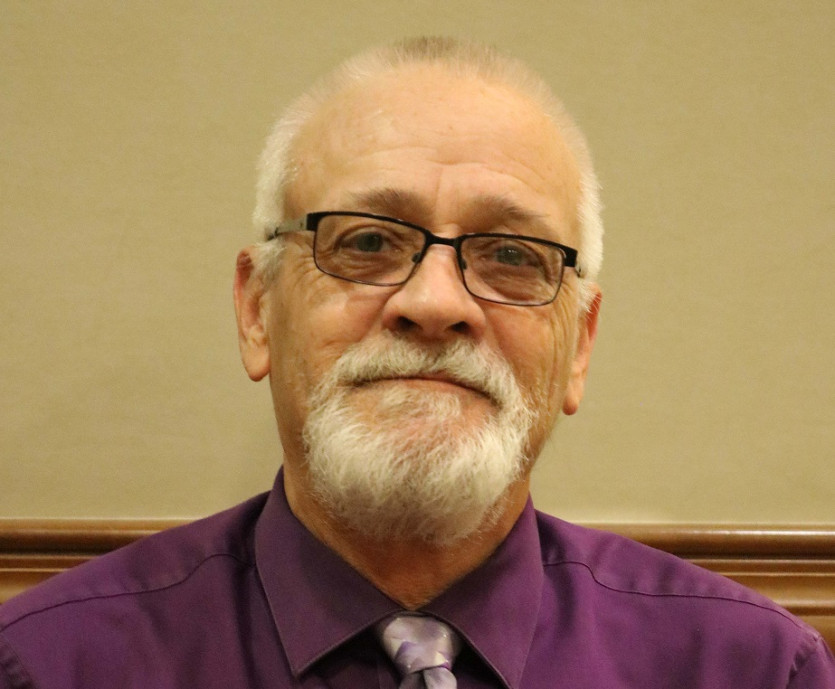Session Sneak Peek: Charles Watt
July 06, 2023
 Charles Watt, APAC-BE, serves as the ADA Coordinator for the Oklahoma Department of Rehabilitation Services, where he has worked for more than 26 years. He is an ACTCP Certified ADA Coordinator and is designated as an ADA Specialist by the Accessibility Professionals Association, an organization consisting of professionals focusing on accessibility in the built environment. He also holds ACTCP Advanced Certificates for Employment and Law Enforcement.
Charles Watt, APAC-BE, serves as the ADA Coordinator for the Oklahoma Department of Rehabilitation Services, where he has worked for more than 26 years. He is an ACTCP Certified ADA Coordinator and is designated as an ADA Specialist by the Accessibility Professionals Association, an organization consisting of professionals focusing on accessibility in the built environment. He also holds ACTCP Advanced Certificates for Employment and Law Enforcement.
He is a member of both the National Network of ADA Trainers and the Leadership Network of the Mid-Atlantic ADA Center. He conducts trainings on various aspects of the ADA for many different state agencies and private groups and organizations. He has served on the APA Board of Directors since 2019 and will serve as president of the board in 2024. He recently became one of the first 33 individuals in the country to pass the APAC-BE exam, a new national certification for professionals working in the field of accessibility in the built environment.
Watt will be covering various types of disabilities and how they affect issues of daily living as well as best practices for social interaction and respectful communication at the July Lunch + Learn. He will also join us as a speaker for the OSCPA's Diversity Equity & Inclusion Summit (In-person | Virtual).
- OSCPA's Lunch + Learn: Disability Awareness and Etiquette
July 18 | CPE Credit: 1 hour | In-person| Virtual
Free for OSCPA Members!
Q&A with Charlie Watt, APAC-BE
OSCPA: Why should members attend your session?
Watt: Many people are unsure and anxious about interacting with people with disabilities. They don’t want to say the wrong thing or behave inappropriately. All too often, people just choose to ignore them, which is usually the unkindest way to behave. Come to this session to find out more about proper etiquette in navigating interactions with people with various disabilities and learn some best practices for those interactions. We’ll talk about the different ways disability has been viewed in the past and gain some insights into the way some individuals with disabilities view themselves, and the world around them.
OSCPA: Why are you passionate about DEI, more specifically disability awareness?
Watt: I have been working with and on behalf of people with disabilities for over 25 years. I’ve seen firsthand how they are sometimes treated disrespectfully in public. During my time working for the Department of Rehabilitation Services, an agency dedicated to finding employment opportunities for people with disabilities, I’ve learned to recognize the many ways we, as a society, have failed to fully integrate these individuals into our communities. I want to be an agent for change in this realm.
OSCPA: What are common misconceptions you feel people have about disabilities?
Watt: Society’s misconception of people with disabilities is oftentimes dependent on the type of disability. However, many arise from the same cause, a lack of understanding about the capabilities of people with disabilities and, possibly, fear and apprehension about how having a disability might one’s own lives and future possibilities. When, in all honesty, disability is only one aspect of most people’s lives. Having a disability doesn’t mean people aren’t still like those who aren’t disabled in so many ways. We all still want so many of the same things; romance, families, entertainment, meaningful employment, and an opportunity to be part of and to contribute to society.
OSCPA: What is the biggest lesson you have learned during your time as ADA Coordinator for the Oklahoma Rehabilitation Services?
Watt: The greatest lesson I have learned about disability during my years working for DRS is how to look around and recognize the many ways we make things more difficult for people with disabilities in our communities. If we could just take a few moments and approach the way we create our buildings, websites, parks, playgrounds, and other public spaces, we could make a much more inclusive and welcoming society. It all just needs a change of mindset and attitude.
